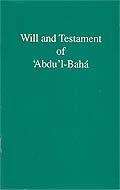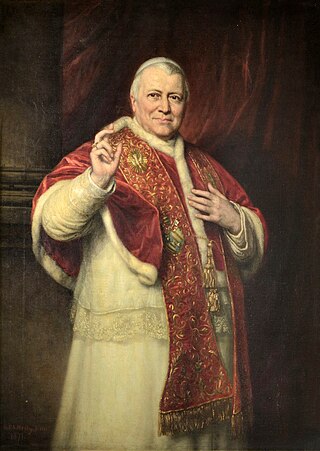
In religion and theology, revelation is the revealing or disclosing of some form of truth or knowledge through communication with a deity or other supernatural entity or entities.
Sola scriptura is a Christian theological doctrine held by most Protestant Christian denominations, in particular the Lutheran and Reformed traditions, that posits the Bible as the sole infallible source of authority for Christian faith and practice. The Catholic Church considers it heterodox and generally the Orthodox churches consider it to be contrary to the phronema of the Church.

Impeccability is the absence of sin. Christianity teaches this to be an attribute of God and therefore it is also attributed to Christ.

The magisterium of the Catholic Church is the church's authority or office to give authentic interpretation of the word of God, "whether in its written form or in the form of Tradition". According to the 1992 Catechism of the Catholic Church, the task of interpretation is vested uniquely in the Pope and the bishops, though the concept has a complex history of development. Scripture and Tradition "make up a single sacred deposit of the Word of God, which is entrusted to the Church", and the magisterium is not independent of this, since "all that it proposes for belief as being divinely revealed is derived from this single deposit of faith".
Biblical infallibility is the belief that what the Bible says regarding matters of faith and Christian practice is wholly useful and true. It is the "belief that the Bible is completely trustworthy as a guide to salvation and the life of faith and will not fail to accomplish its purpose."
The infallibility of the Church is the belief that the Holy Spirit preserves the Christian Church from errors that would contradict its essential doctrines. It is related to, but not the same as, indefectibility, that is, "she remains and will remain the Institution of Salvation, founded by Christ, until the end of the world." The doctrine of infallibility is premised on the authority Jesus granted to the apostles to "bind and loose" and in particular the promises to Peter in regard to papal infallibility.

As a general term in theological use, assurance refers to a believer's confidence in God, God's response to prayer, and the hope of eternal salvation. In Protestant Christian doctrine, the term "assurance", also known as the Witness of the Spirit, affirms that the inner witness of the Holy Spirit allows the Christian disciple to know that he or she is justified. Based on the writings of St. Augustine of Hippo, assurance was historically an important doctrine in Lutheranism and Calvinism, and remains a distinguishing doctrine of Methodism and Quakerism, although there are differences among these Christian traditions. Hymns that celebrate the witness of the Holy Spirit, such as "Blessed Assurance" are sung in Christian liturgies to celebrate the belief in assurance.
The Baháʼí administration is a system of elected and appointed institutions to govern the affairs of the Baháʼí community. Its supreme body is the Universal House of Justice, elected every five years.

The Will and Testament of ʻAbdu'l-Bahá was a seminal document of the Baháʼí Faith, written in three stages by ʻAbdu'l-Bahá. Several sections were written under imminent threat of harm. The first section was probably written in 1906.
In the Baháʼí Faith there are two covenants, deemed the 'greater' and 'lesser'. The greater covenant refers to an agreement of progressive revelation: that God will send messengers about every thousand years, and it is humanity's duty to recognize them and respond to their teachings. The lesser covenant is the agreement between the faith's founder, Baháʼu'lláh, and his followers, regarding the succession of leadership and the maintenance of unity.
Progressive revelation is a core teaching in the Baháʼí Faith that suggests that religious truth is revealed by God progressively and cyclically over time through a series of divine Messengers, and that the teachings are tailored to suit the needs of the time and place of their appearance. Thus, the Baháʼí teachings recognize the divine origin of several world religions as different stages in the history of one religion, while believing that the revelation of Baháʼu'lláh is the most recent, and therefore the most relevant to modern society.
The Manifestation of God is a concept in the Baháʼí Faith that refers to what are commonly called prophets. The Manifestations of God are appearances of the Divine Spirit or Holy Spirit in a series of personages, and as such, they perfectly reflect the attributes of the divine into the human world for the progress and advancement of human morals and civilization through the agency of that same Spirit.
The Baháʼí teachings represent a considerable number of theological, ethical, social, and spiritual ideas that were established in the Baháʼí Faith by Baháʼu'lláh, the founder of the religion, and clarified by its successive leaders: ʻAbdu'l-Bahá, Baháʼu'lláh's son, and Shoghi Effendi, ʻAbdu'l-Bahá's grandson. The teachings were written in various Baháʼí writings. The teachings of the Baháʼí Faith, combined with the authentic teachings of several past religions, are regarded by Baháʼís as revealed by God.

The Tablets of Baháʼu'lláh Revealed After the Kitáb-i-Aqdas are selected tablets written by Baháʼu'lláh, the founder of the Baháʼí Faith, and published together as of 1978. The current edition bears the title Fountain of Wisdom: A Collection of Writings from Baháʼu'lláh.

Some Answered Questions is a compilation of table talks of ʻAbdu'l-Bahá that were collected by Laura Clifford Barney between 1904 and 1906 across several pilgrimages. The book was first published in English in 1908. ʻAbdu'l-Bahá was the son of Baháʼu'lláh, the founder of the Baháʼí Faith, and was appointed by him as his successor and interpreter of his words.

A dogma of the Catholic Church is defined as "a truth revealed by God, which the magisterium of the Church declared as binding". The Catechism of the Catholic Church states:
The Church's Magisterium asserts that it exercises the authority it holds from Christ to the fullest extent when it defines dogmas, that is, when it proposes, in a form obliging Catholics to an irrevocable adherence of faith, truths contained in divine Revelation or also when it proposes, in a definitive way, truths having a necessary connection with these.
The theological notes designate a classification of certainty of beliefs in Catholic theology.

Papal infallibility is a dogma of the Catholic Church which states that, in virtue of the promise of Jesus to Peter, the Pope when he speaks ex cathedra is preserved from the possibility of error on doctrine "initially given to the apostolic Church and handed down in Scripture and tradition". It does not mean that the pope cannot sin or otherwise err in most situations.
The Baháʼí Faith is a relatively new religion teaching the essential worth of all religions and the unity of all people, established by Baháʼu'lláh in the 19th-century Middle East and now estimated to have a worldwide following of 5–8 million adherents, known as Baháʼís.
Baháʼís venerate Muhammad as one of a number of prophets or "Manifestations of God", but consider his teachings to have been superseded by those of Baháʼu'lláh, the founder of the Baháʼí Faith.







